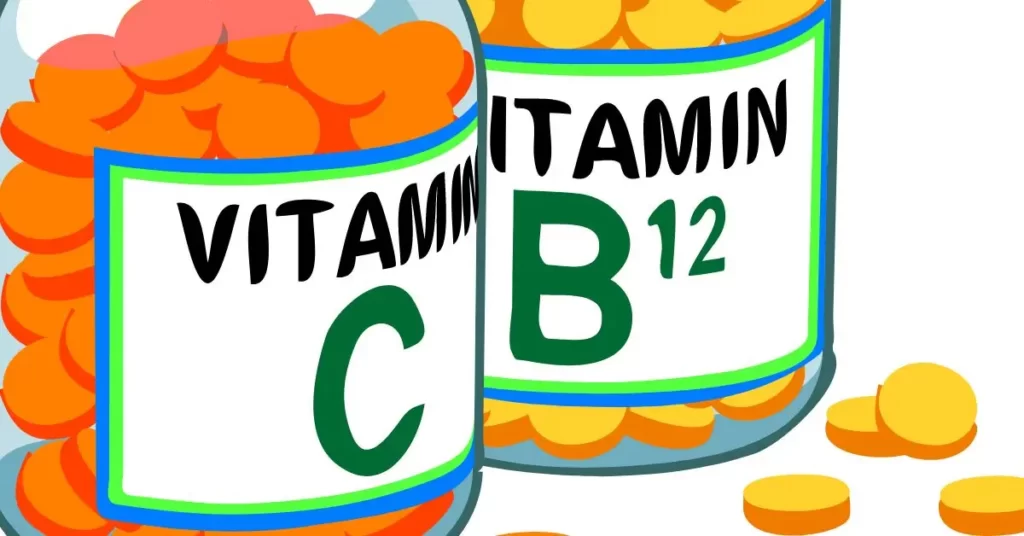Introduction
A multivitamin is a construction intended to serve as a dietary supplement with vitamins, dietary supplements, & other nutritional elements. It comes in various forms (tablets, capsules, liquids, powders) & is packaged as a specific amalgamation of nutrients (B-complex, calcium with vitamin D) or an extensive multivitamin. Such practices are available in tablets, capsules, pastilles, powders, liquids, or injectable formulations. Remembering that multivitamins cannot replace a healthful, well-balanced diet is essential. The primary aim of a multivitamin is to fill in nutritional gaps & provides only a hint of the vast array of beneficial nutrients and chemicals naturally found in food. It cannot offer fibre or the flavour and enjoyment of foods crucial to an optimum diet.
A dietary supplement contains all or most vitamins that may not be readily available. Vitamins explain according to their solubility in lipids (vitamins A, D, E, K, F) or water (vitamins C, B-complex). Present in minute amounts in various foods, vitamins are essential to maintaining normal metabolism and biochemical functions. Moreover, multivitamins may play an important role when diet alone does not meet nutritional requirements.
1. The Pros and Cons of Taking Multivitamins: What You Need to Know
Take only the recommended dose of a multivitamin. Only take multiple multivitamin products simultaneously if the doctor/dietician tells you to. Eating similar vitamin products together can result in a vitamin overdose or severe side effects. Many multivitamin products also contain calcium, iron, magnesium, potassium, and zinc minerals. Minerals can create side effects such as tooth staining, enlarged urination, stomach bleeding, uneven heart rate, confusion, & muscle weakness or limp feeling. Please read the label of any multivitamin product. Have your multivitamin with a full glass of water.
It would be best to chew the chewable tablet before swallowing it.
Place the sublingual tablet under the tongue & allow it to dissolve or break down completely. However, Do not chew a sublingual tablet or swallow it whole. Measure liquid medicine carefully. Use the dosing syringe provided or a medicine dose-measuring device or gadget(not a kitchen spoon/utensil). Use multivitamins regularly to get the benefit. Carry at room temperature, away from moisture& heat. Do not freeze. Keep multivitamins in their original container; don’t try to change the container. You can ruin the medication if you store multivitamins in a glass container.

2.”Do You Need a Multivitamin? Understanding the Benefits and Risks”
Remembering that multivitamins cannot replace a healthful, well-balanced diet is essential. The primary purpose of a multivitamin is to fill in nutritional gaps, and it only hints at the vast array of beneficial nutrients and chemicals naturally found in food. Having multivitamins is related or connected with an improvement in energy & feelings of well-being and a decrease in stress and anxiety. Alone, it makes it worth staying compliant with a multivitamin routine. For most people, a multivitamin isn’t necessary. Still, for some, like older adults, people undergo low appetite or trouble taking a balanced diet from an illness or even pregnancy, the multivitamin may help fill in nutrition gaps; constipation, diarrhoea, or upset stomach may occur. These effects are usually temporary & may disappear as the body adjusts to this medication. Inform the doctor or dietician promptly if these effects last or worsen.
You have increased energy levels. When you don’t get enough vitamins, The body has to work harder to accomplish simple tasks, which can lead to fatigue and other health problems.

3. “From A to Zinc: The Essential Nutrients Found in Multivitamins.”
A to Z NS tablet contains multivitamins such as vitamin C, vitamin B3, vitamin B2, vitamin B1, vitamin B5, vitamin B6, and vitamin E; multi-minerals like calcium, manganese, copper, sodium, and zinc. Zinc is a nutrient that people require to stay healthy. It is found in cells throughout the whole body. It helps the immune or resistant system fight off invading bacteria & viruses. The body also uses zinc to make proteins and DNA (cell genetic material). It also is a trace mineral, meaning that the body only needs small amounts, & yet it is necessary for almost 100 enzymes to carry out vital chemical reactions. It is a significant player in creating DNA, the growth of cells, building proteins, healing damaged tissue, and supporting a healthy immune system.
Zinc & vitamin A interact in many ways. Zinc is a retinol-binding protein essential for transporting vitamin A in the blood. Zinc is also needed for the enzyme that converts retinol (vitamin A) to retinal.
4.”Maximizing Your Health with Multivitamins: Tips and Recommendations.“
The primary aim of a multivitamin is to fill the nutritional gaps & provides only a hint of the vast array of healthful nutrients & chemicals naturally found in food. It would help if you took most of your supplements—including your daily multivitamin—with your largest meal, such as lunch or dinner. Ideally, the meal should contain fat (think fatty fish, avocado, eggs, or nuts) to allow optimal absorption of the fat-soluble vitamins. Adopting a broad healthy diet is an excellent approach to ensure you get a diversity of vitamins & minerals & in the proper amounts. It also emphasizes fruits & vegetables, whole grains, beans and legumes, low-fat protein, and dairy products.
5.“The Science Behind Multivitamins: Examining the Research”
If we take a multivitamin, we want to do each everything we can to protect our health. Most famous studies find no benefit from multivitamins in protecting the brain or heart. Moreover, there is still limited evidence that a daily cocktail of essential vitamins & minerals delivers what we expect. People take or eat multivitamins daily for an extended time. Moreover, the period depends entirely on the user or individuals. Many individuals take supplements for a few days, while others may take them for years. For multivitamins to be fully absorbed into our system, one should take them with food.
6.“The Truth About Multivitamins: Separating Fact from Fiction”
Multivitamins are not a ticket to optimum health. Corroboration that improves health for most people needs to be more consistent. Minerals can cause side effects such as tooth staining, increased urination, stomach bleeding, uneven heart rate, confusion, & muscle weakness or limp feeling. In some or many cases, they may even cause harm. If you have a nutrient deficiency, it’s best to supplement with that specific nutrient. Many multivitamin products also contain calcium, iron, magnesium, potassium, and zinc minerals.

7.“Multivitamins vs Whole Foods: Which Is Better for Your Health?”
Whole foods are a much better source of nutrients than synthetic forms of vitamins and minerals, which means that the benefits you hope to experience may be maximized when you choose a vitamin with whole food ingredients. Multivitamins and supplements can’t replace food. Whole foods have benefits that supplements can’t provide. Some benefits of whole foods include Complex nutrition: Whole foods contain more complex, varied nutrients.
8.“Who Should Take Multivitamins? Understanding Your Nutritional Needs”
Many people do not require to take vitamin supplements & can get all the vitamins & minerals they need by eating a healthy and balanced diet. Vitamins & minerals, such as iron, calcium and vitamin C, are essential nutrients that our body needs in small amounts to work correctly. Remembering that multivitamins cannot replace a healthy, well-balanced diet is also necessary. The primary aim of a multivitamin is to fill in nutritional gaps & provides only a hint of the vast array of healthful nutrients & chemicals naturally found in food. It cannot offer fibre or the flavour and enjoyment of foods, so critical to an optimum diet. However, multivitamins can be essential when diet alone does not meet nutritional requirements.

9.“Multivitamins for Optimal Health: A Comprehensive Guide”
Multivitamins are a comprehensive product. They offer extensive support in consuming the necessary vitamins your regular diet lacks. However, there are other solutions than taking them aimlessly. It helps you understand how and when to take them and learn multivitamins’ side effects before going ahead. Multivitamins that deliver 100% nutrients are usually safe and have no side effects. But if you take them as directed (by a doctor or on the pill packaging), they’re safe. The common side effects of multivitamin supplements are constipation, nausea, diarrhoea, etc. So, read on to learn more.
Multivitamins are undoubtedly helpful and pack a lot of benefits. However, you need to factor in the side effects of multivitamins and then proceed accordingly to avoid any long-term issues.
Conclusion
A dietary supplement contains all or most vitamins that may not be readily available. Vitamins explain according to their solubility in lipids (vitamins A, D, E, K, F) or water (vitamins C, B-complex). Present in minute amounts in various foods, vitamins are essential to maintaining normal metabolism and biochemical functions. Moreover, multivitamins may play an important role when diet alone does not meet nutritional requirements. Multivitamins and supplements can’t replace food. Whole foods have benefits that supplements can’t provide. Some benefits of whole foods include Complex nutrition: Whole foods contain more complex, varied nutrients.




